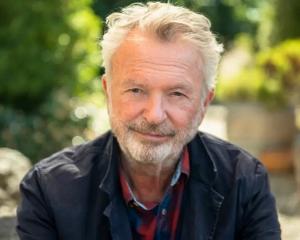
The English poet was disturbed in his creative endeavours by a visitor from the nearby village of Porlock in Somerset, and forgot the images from a dream which he had been hurriedly writing down.
Losing our way, our train of thought, after an interruption is something we have all experienced. When we pick up the thread again, we find it considerably frayed.
When it comes to the arts in New Zealand, we need to be very careful we do not lose our way. The arts are definitely the poor relation in our sports-mad country, often having to make do with little or dwindling government funding, and relying instead on the largesse of the community and wealthy philanthropists.
This may be why the arts are sometimes viewed as something exclusive for the well-to-do, and of little practical interest for many New Zealanders. It is artsy-fartsy, touchy-feely, namby-pamby stuff.
But nothing could be further from the truth.
As the government agonises about the poor showing of school pupils in the vital subjects of mathematics and reading, and introduces some well overdue rigour into that curriculum area, it has to ensure it does not play off their importance against arts subjects such as music, fine art or literature.
It must not be a competition. All disciplines have a crucial role in developing our young people, nay all of us.
For Prime Minister Christopher Luxon to suggest arts and music should take a back seat while pupils and teachers work on their maths is simple-minded and shows a lack of the lateral thinking which studying the arts would provide.
This is simply a distraction to the rounded development of our young folk, our communities and society. In doing this, Mr Luxon is acting as the visitor from Porlock.
This week, the prime minister told Newstalk ZB the government was focused on raising achievement in maths and reading, "and that may well mean we’re going to defer our arts and music curriculum for now".

Mr Luxon’s remarks have irritated many music teachers and pupils. For some young folk, music is what keeps them interested in school.
Taieri College head of music Brad Martin said music, as a real-life application of maths, made the two subjects inseparable, while Maniatoto Area School principal Melissa Bell said at a time when creativity and social-emotional learning were more important than ever, the arts had to be protected "at all costs".
Coincidentally, the BBC reported this week that students are spending so much time in front of screens they are losing dexterity for the fine-motor skills involved in surgery. The concern is that without using their hands for arts and crafts work, cutting out and making things, medical students who may be highly intelligent now lack the ability to stitch and sew-up patients.
In his maiden speech in Parliament in March 2021, Mr Luxon said New Zealand deserved the "very, very best", not just for the economy but for society and the environment.
The government needs to tread cautiously in diminishing the arts. It is quite likely some of National’s biggest donors will be fine-art collectors, or avid supporters of their local orchestras and theatre companies.
In the words of another poet, Dylan Thomas, when it comes to the arts: "Do not go gentle into that good night."
And another medal
More Olympic medals have been won by former Central Otago school pupils as New Zealand yesterday moved to 12th place on the medal table.
Track cyclist Ellesse Andrews, once at Wānaka’s Mount Aspiring College and now from Christchurch, won gold in the women’s keirin.
Clyde cyclist Nicole Shields had earlier earned a silver medal in the women’s team pursuit. Fellow former Dunstan High School pupil Finn Butcher, of Alexandra, secured a gold in the kayak-cross earlier in the week.
Central truly is gold territory.










